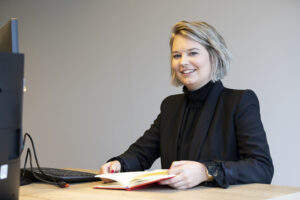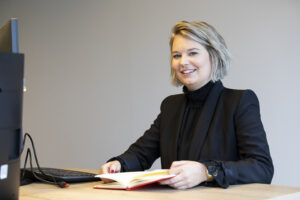The Belgian legislator has substantially reformed the existing VAT legislation for services provided by medical and paramedical professionals. The existing rules encounter a number of constitutional objections and are, moreover, not entirely in line with the case-law of the Court of Justice.
More precisely, the current VAT exemption for (para)medical services and the conditions under which this exemption can be claimed have been adjusted. The new rules will enter into force on 1 January 2022.
Below is an overview of the essential changes that (para) medical practitioners will have to take into account.
The new rules summarised
The reform is twofold: on the one hand, the personal scope of the VAT exemption is broadened, while on the other hand, the material scope is reduced.
Personal scope
Under to the new legislation, the VAT exemption is no longer exclusively reserved for practitioners of recognised and regulated medical or paramedical professions. From now on, other practitioners will also be eligible, provided that they can guarantee to offer services of a sufficiently high quality.
The new legislation requires these professionals to:
- Be the holder of a certificate issued by an institution recognised by a competent public authority (of the country in which that institution is located)
- Have the necessary qualifications (on the basis of the aforementioned certificate) to provide medical care of a level of quality comparable to that are provided by accredited professionals
The new legislation provides that the VAT administration is responsible for verifying the certificate and whether compliance with the quality level criteria has been achieved.
This means, for example, that osteopaths and chiropractors – previously well-known subjects of discussion – will now have a legal basis for applying the VAT exemption to their services, provided that they are in possession of a diploma, certificate or attestation issued by a recognised university, college or other Belgian educational institution.
Material scope
The current legislation states that the VAT exemption cannot be applied to certain “aesthetic” services carried out by doctors.
The new legislation now stipulates, in more general terms, that the VAT exemption does not apply to interventions and treatments with a non-therapeutic goal.
Treatments with a therapeutic goal are, in principle, medical care services with the purpose of diagnosing, treating and, to the extent possible, curing diseases or health problems.
Moreover, this rule applies regardless of whether the services are carried out inside or outside a hospital (or other healthcare institution).
The (para)medical practitioners will need to pay attention to the operations to which they apply the VAT exemption. For example, the preparation of a medical expert’s report in the context of damage assessment and/or insurance or the delivery of a medical certificate for the purpose of receiving a certain benefit do not qualify for the VAT exemption due to the absence of a therapeutic goal.
Neither can activities aimed at beautifying or improving physical appearance qualify for the VAT exemption, regardless of what type of professional performs them. For example, teeth whitening by a dentist will be excluded from the VAT exemption.
A physiotherapist who provides services as a personal coach will also have to charge VAT.
VAT identification, filing VAT returns and revisions
Taxpayers who must have themselves identified for VAT purposes as a result of the new legislation can obtain activation of their company registration number by submitting form e604A via an accredited business counter or via the e604 electronic application.
Here, you can indicate which VAT regime will be applied: taxable person with full deduction right, mixed taxable person or the small enterprises exemption scheme.
You will be able to benefit from the latter if your turnover from taxed services does not exceed EUR 25,000 (excl. VAT) on an annual basis. You will then be released from a number of VAT obligations.
According to a recent notice dated 9 December 2021 on the website of the FPS Finance, the company registration number can be activated as a VAT number taking effect on 1 January 2022, if the form is submitted at the latest on 31 January 2022.
A number of tolerances are foreseen with respect to the submission of VAT returns so that taxpayers can prepare for the submission of VAT returns (for the first time):
- Monthly VAT filers can:
- Include the transactions of January, February and March 2022 in the return for April 2022, provided that a “nihil” return is filed for each of these months;
- Include the transactions of January, February and March 2022 in the return for March 2022, provided that a “nihil” return is filed for January and February and that the normal rules are applied after the March 2022 return;
- Include the transactions of January and February 2022 in the return for February 2022, provided that a “nihil” return is filed for January and the normal rules are applied after the February 2022 return.
- Quarterly VAT filers can include first quarter transactions in the second quarter’s return, provided that a “nihil” return is filed for the first quarter.
Taxpayers who, as from 1 January 2022, are eligible for a VAT exemption and who previously performed VAT taxable activities, may have to make a revision to their disadvantage of the VAT deducted in previous years. The administration accepts that this revision can be done annually.
Other tolerances
According to the same announcement of the FPS Finance, the old rule continues to apply to certain transactions:
- Interventions or treatments committed no later than 31 December 2021 and executed no later than 30 June 2022;
- Services performed no later than 31 December 2021 (taxable event), but for which a cause of action arises after that date.
Specific tolerance rules also apply for honoraria related to services materially performed before and after 1 January 2022.
Our Bofidi experts are happy to help you
Do you have any specific questions about these new VAT rules? Do not hesitate to contact us. Our team of Bofidi experts will be happy to help you.






